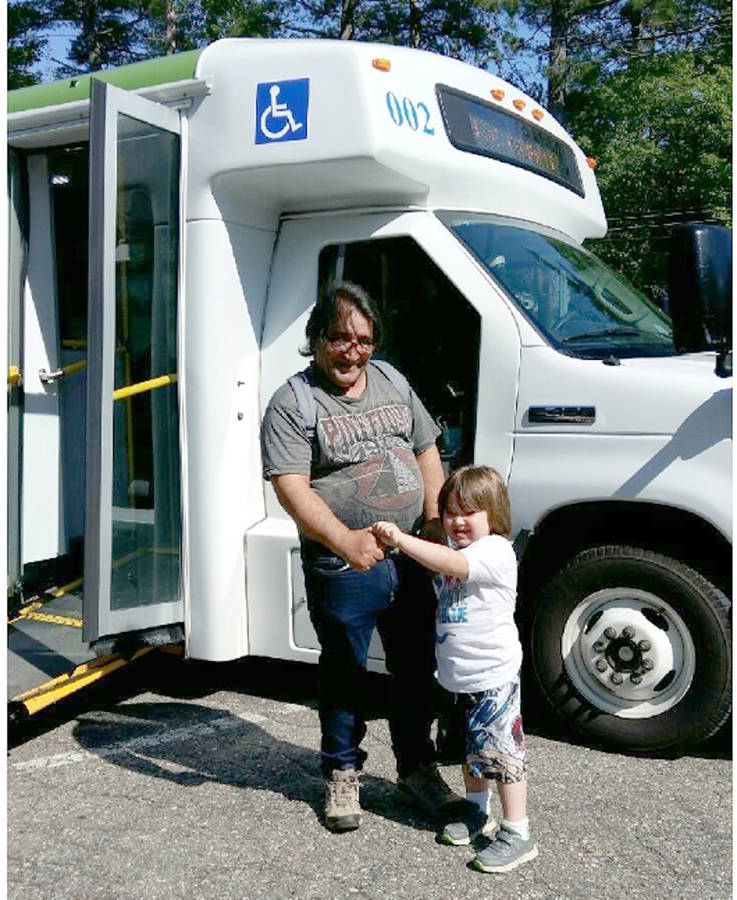
2021-07-14
Bridgewater transit celebrates 100,000th passenger
by KEITH CORCORANJoe Pacheco and his young son take Bridgewater's public transit bus at least five times a week. A lot of the time, it's "just to get out," as the single dad and former self-employed maintenance worker does not drive.
"It takes me where I have to go, that's the main thing," said Pacheco, who moved to Bridgewater's west side about a year ago from Queens County.
During a recent phone call with LighthouseNOW, he called the town's bus service "fantastic."
Equally fantastic for him, and Bridgewater's four-year-old transit program, is the recently-reached milestone; Pacheco became the bus service's 100,000th passenger.
"I was, like, are you serious?" Pacheco recalled when he heard the news. "That is awesome. Totally awesome."
For the accomplishment, he was awarded a one-month pass.
Bridgewater's mayor, David Mitchell, said hitting the six-figure mark means there is no disputing the importance of the service; it's necessity in the community.
"We anticipated 12,000 to 16,000 riders per year. If you do the math, we're a few years ahead of schedule," the mayor told LighthouseNOW during a phone interview.
In 2017, before the transit was a permanent service, Bridgewater acquired two old Metro X buses donated for free from Halifax so the Main Street of the South Shore could give the concept a try. Interest took off and the town made it a permanent program in 2019. Last year, two 2020 Champion LF transit buses - on 2021 Ford E-450 chassis - complete with bi-fold ramps and other specifications were added at a cost of $431,000 to replace the Halifax units.
With each milestone, Bridgewater adds more promotion of the service and additional conversation on a national stage about public transit needs across various jurisdictions, Mitchell indicated.
Bridgewater Transit, which costs the town about $250,000 a year to operate, ordinarily runs from 6 a.m. to 8 p.m. weekdays and 8 a.m. to 6 p.m. Saturdays. It is a one-hour, fixed 16-kilometre loop service.
While the service does not make money, Mitchell, and dedicated riders like Pacheco, see it as an investment in a life-improving amenity for the community.
Pacheco said his son knows the bus drivers by name "and they know him by name."
However, there is always room for improvement.
Pacheco hopes someday there will be a regular Sunday schedule and a second bus added to the route so that the buses go in opposite directions. He would also like to see the service expanded to the shopping area in Cookville, near the Highway 103 interchange, which is outside of town. He also found the old buses had more leg room.
A two-bus route means doubling the expense, Mitchell said. As for the Cookville stop, the mayor hopes the Municipality of the District of Lunenburg carries out a feasibility study to see what that government wants in a transit service.
Some businesses sponsor occasional Sunday service but, Mitchell pointed out, there is not enough ridership for it to make economic sense and, therefore, have it lead to it being permanent.







